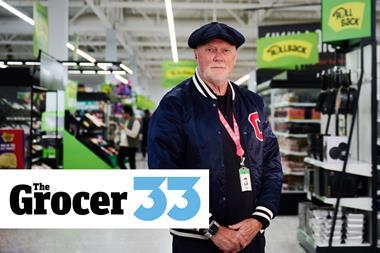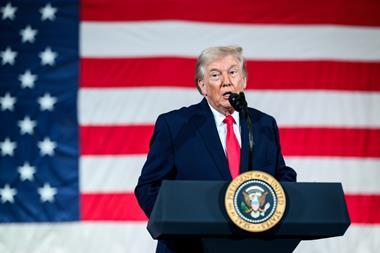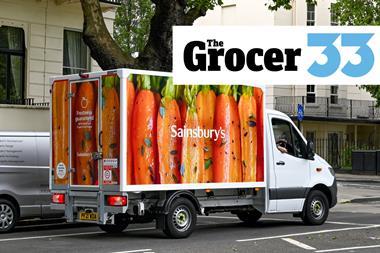Several trends have emerged across Europe over the last few years, including an increasing demand for premium own-label products.
This is largely being driven by consumers who increasingly expect quality as well as lower prices. According to PLMA research manager Jeff Freeman, the latest figures show that volume of own-label products is up by 25% and value is up 30%.
He says: "Value-added products have always been an important part of the mix in the UK, but it is also beginning to happen in Continental Europe as well."
But it is not simply consumer demand that is driving this trend. Freeman cites leading German discount chain Aldi as an example. Its model is to offer own-label almost exclusively, with 90% of its grocery range now sitting under own-label.
Freeman explains that Aldi's decision to add more premium products to its range was in reaction to market pressures. "Many consumers loyal to discount stores are starting to head back to full-service retailers, mainly because they have more money and are willing to buy value-added products," he says.
"To keep appealing to its customers Aldi needs to emulate full-service retailers, in the same way that full-service retailers have introduced lower-priced lines."
Aldi has introduced a range of premium diet products and top-end sandwiches. Freeman believes consumers will also start seeing a lot more own-label fresh and ready meals in discount stores.
'Special interest' own brands, including organic, Fairtrade and healthy eating products, is another emerging market.
Planet Retail has produced a report called Trends in Private Label Worldwide 2007, which illustrates some of the main developments. For example, in 2006 discount chain Lidl launched three different umbrella labels: Linessa, a healthy eating, low fat, low sugar range; a Bioness organic label; and a range of Fairtrade products under the Fairglobe logo. Lidl was the first major retailer in Germany to introduce a Fairtrade own-label.
In February this year Danish discount chain Netto introduced a healthy eating own-
label range in the UK under the Minimum brand. In the same month Sainsbury's introduced health messages on its own-label alcohol products, while Asda announced it will launch an organic clothing range under its George banner. Superdrug has this month launched an own-label range of skincare and cosmetic products for black women, called Sleek.
Report author Matthias Queck says: "The accelerated move towards healthy eating, organic, Fairtrade and eco-friendly products plays into the retailers' hands as they can easily launch a coherent umbrella label for these categories. This is much more difficult for manufacturers, as in most cases they don't cover a whole food range, but just their specific products.
"This umbrella labelling isn't only being observed at full-range retailers, but also by hard discount stores." n
This is largely being driven by consumers who increasingly expect quality as well as lower prices. According to PLMA research manager Jeff Freeman, the latest figures show that volume of own-label products is up by 25% and value is up 30%.
He says: "Value-added products have always been an important part of the mix in the UK, but it is also beginning to happen in Continental Europe as well."
But it is not simply consumer demand that is driving this trend. Freeman cites leading German discount chain Aldi as an example. Its model is to offer own-label almost exclusively, with 90% of its grocery range now sitting under own-label.
Freeman explains that Aldi's decision to add more premium products to its range was in reaction to market pressures. "Many consumers loyal to discount stores are starting to head back to full-service retailers, mainly because they have more money and are willing to buy value-added products," he says.
"To keep appealing to its customers Aldi needs to emulate full-service retailers, in the same way that full-service retailers have introduced lower-priced lines."
Aldi has introduced a range of premium diet products and top-end sandwiches. Freeman believes consumers will also start seeing a lot more own-label fresh and ready meals in discount stores.
'Special interest' own brands, including organic, Fairtrade and healthy eating products, is another emerging market.
Planet Retail has produced a report called Trends in Private Label Worldwide 2007, which illustrates some of the main developments. For example, in 2006 discount chain Lidl launched three different umbrella labels: Linessa, a healthy eating, low fat, low sugar range; a Bioness organic label; and a range of Fairtrade products under the Fairglobe logo. Lidl was the first major retailer in Germany to introduce a Fairtrade own-label.
In February this year Danish discount chain Netto introduced a healthy eating own-
label range in the UK under the Minimum brand. In the same month Sainsbury's introduced health messages on its own-label alcohol products, while Asda announced it will launch an organic clothing range under its George banner. Superdrug has this month launched an own-label range of skincare and cosmetic products for black women, called Sleek.
Report author Matthias Queck says: "The accelerated move towards healthy eating, organic, Fairtrade and eco-friendly products plays into the retailers' hands as they can easily launch a coherent umbrella label for these categories. This is much more difficult for manufacturers, as in most cases they don't cover a whole food range, but just their specific products.
"This umbrella labelling isn't only being observed at full-range retailers, but also by hard discount stores." n


















No comments yet